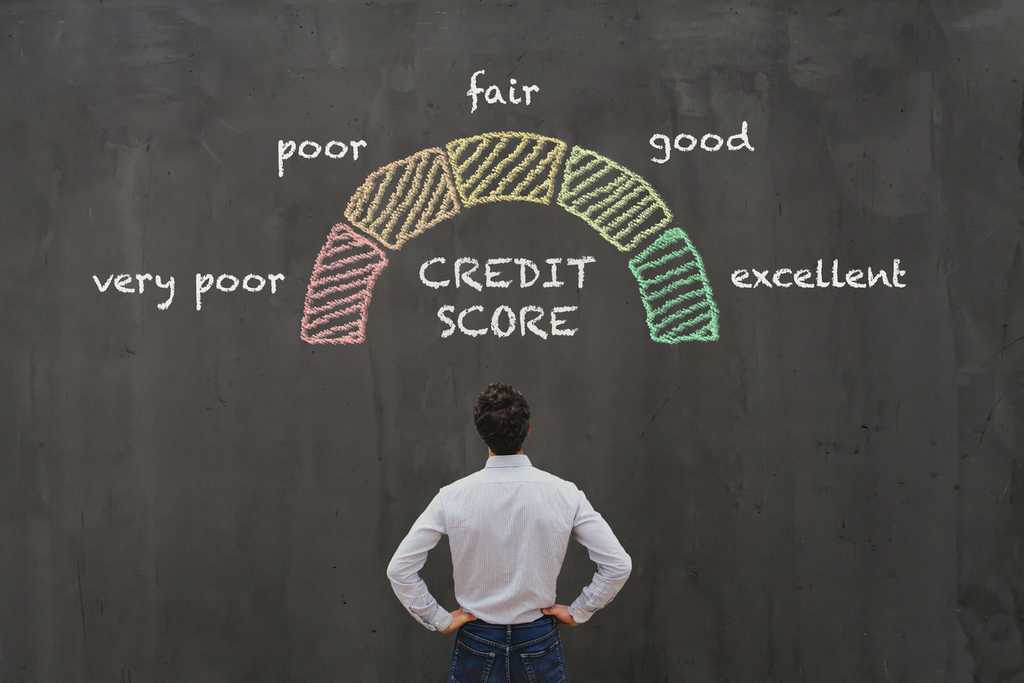No, debt consolidation doesn’t hurt your credit score. The advantage of reducing the number of outstanding balances you have, and potentially paying down your debt sooner outweighs any small, negative effect on your credit that opening an additional account may have.
How does debt consolidation affect your credit score?
There are numerous ways that debt consolidation can affect your credit, so it’s important to look at all of these factors together.
Positive effects debt consolidation can have on your credit score
- Reduces your debt to credit ratio - For example, opening up a new line of credit, such as a balance transfer credit card, will reduce your debt to credit ratio, for a given amount of debt. To illustrate this, imagine if you had a total of $10,000 of available credit, and you had $5,000 in outstanding balances. You would have a debt to credit ratio of 50%, which is higher than most credit experts would recommend. Then, let’s say that you were to then open up another credit card with a $5,000 limit, and transfer your outstanding balances to it. You would now have $15,000 of available credit. With the same $5,000 of outstanding balances, you’ll now have a debt to credit ratio of just 33%. While that’s still somewhat high, it’s better than before and can improve your credit score.
- Reduces your chance of missing a payment - When you’ve consolidated your debt, you’ve reduced the number of accounts you have with outstanding balances, which can also help to improve your credit score. But most important are the indirect effects of consolidating your debts. By having fewer outstanding balances, you’ll have fewer payments to make, reducing your chance of missing a payment. And as most people are aware, missing payments will severely hurt your credit. And if you’ve consolidated your debts to a credit card with a 0% APR promotional financing offer, then you’ll be able to pay down your balance sooner than you would if you had to also pay interest charges.
Negative effects debt consolidation can have on your credit score
However, there are a few disadvantages to debt consolidation, but they are minor.
- Create hard inquiries - Applying for and opening a new account, will create a hard inquiry on your credit report. Having numerous hard inquiries on your report in a short period of time can temporarily lower your credit, but a single hard inquiry is unlikely to have a significant effect.
- Reduces the average age of your credit - Likewise, opening a single new account rarely affects your credit, but it could slightly lower your score if you’ve opened other new accounts within the last few months. Opening up a new account can also reduce the average age of your credit, which is a very small factor in your credit score. But if you’ve had multiple accounts open for several years, opening a single new account is unlikely to have a significant impact on your credit score.
- Reduces your total available credit - Also, if you close some of your accounts after you’ve consolidated your debt, then you will reduce your available credit, which will increase your debt to credit ratio (for a given amount of debt). Therefore, it’s best to leave your accounts open, even once you’ve paid off your balance.
Does debt consolidation show up on your credit report?
A credit report will show each account you have, and its balance and payment history. But it won’t specifically include any information about debt consolidation. Suppose you transferred your balances from three credit cards to a new one. Your credit report will show that there’s no balance on those three cards, but it will report a balance on the card that you transferred it to. The same is true if you were to consolidate your debt using another kind of loan. From the perspective of someone reading the credit report, there’s no way to know if you consolidated your debt or if you simply paid off your existing balances, while making purchases on the new card.
Ways to consolidate your debt
There are numerous ways to merge your debts, and each has its advantages and drawbacks.
Balance transfer credit card
The advantage of balance transfer credit cards is that there are many offers available with 0% APR promotional financing. These offers last from at least six months to occasionally as long as 21 months before the standard interest rate applies to the remaining balance. Currently, the most competitive offers include 15-18 months of interest free financing on both new purchases and balance transfers.
One drawback of these offers is that you’ll have to pay a balance transfer fee, which is typically 3% of the amount transferred, but is occasionally as much as 5%. Also, those that have a large amount of outstanding debt may not qualify for a credit line sufficient to transfer all of their balances to. And of course, if you don’t have good or excellent credit, then you won’t qualify for many of these offers.
Personal loan
Personal loans can offer lower standard interest rates than most credit cards, and may not require as high of a credit score as a balance transfer credit card. However, personal loans can have high application and origination fees, and some may have prepayment penalties.
Home equity loan
A home equity line of credit can offer very low interest rates, and borrowers are free to use the money to pay off debts or for any other reason. Home equity loans can has significant closing costs.
Borrowing against retirement savings
Consolidating your debt with a loan from your 401k plan or retirement savings is a risky option that can impact your retirement
Borrowing against life insurance
As with borrowing from your retirement savings, borrowing from your life insurance kind of defeats the point of having life insurance in the first place. What you borrow will be subtracted from your death benefit should you die before paying it back.
Is debt consolidation bad?
It’s hard to see how debt consolidation could be considered a bad thing, and for the vast majority of people it will be positive. For example, having fewer outstanding accounts will make it much easier to make your payments on-time. Your payment history is the most important factor that makes up your credit score, and there’s nothing more important than ensuring that all of your payments are made on-time.
There’s also the psychological effect of having to make fewer payments. Every time you receive a new statement with a new balance and have to make a new payment, it takes both time and mental energy to process it. But by having fewer, or even just a single outstanding balance, you have fewer accounts to manage and far less to worry about.
And of course, if you’re able to consolidate your debt to an account with a lower interest rate, then, you can potentially save significant money on interest charges, which can allow you to pay off your balance sooner.
The only way debt consolidation can be bad is if you make poor choices. For example, if your debt consolidation plan involves borrowing at a higher interest rate that you currently have, then it will cost you more. Also, if you borrow from your 401k or life insurance, and fail to repay your loan, then you might not have those funds when you need them.
Simplifying your debts is good for your credit
In nearly all cases, debt consolidation will not hurt your credit. Better yet, successful debt consolidation will allow you to pay down your debts more quickly and easily, and at lower cost. Doing so will only help your credit. By understanding how debt consolidation works, and it’s largely positive effect on your credit, you can decide if it makes sense for your needs.

